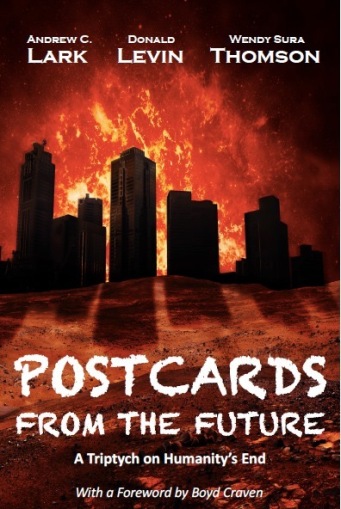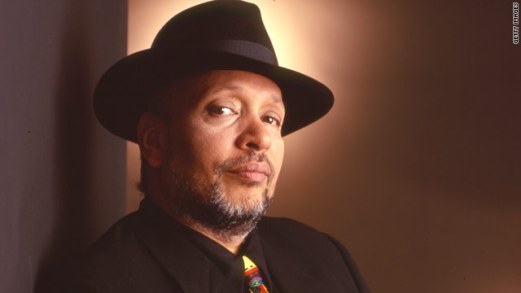In 1985, in the midst of a worklife marked by almost constant professional reinvention, I found myself sitting around a table at an IBM facility near Binghamton, NY, having one of those “What Am I Doing Here?” moments.
I was sitting with two guys from the local branch of IBM’s Federal Systems Division. Their division, as the name suggests, undertook a variety of contracts and projects for the government.
We were talking about a project they wanted me to do. I was then a free-lance writer specializing in, well, anything anybody wanted to hire me for. At the time, I found myself writing a lot of scripts for training and promotional videos, and they wanted me to write one of those.
The project was titled, “The LAMPS MK II Radar Data Processor: Flight Test Report.”
Briefly, the LAMPS MK II Radar Data Processor was a complicated system of electronics to improve the reliability and effectiveness of radar, data-linking, and other key operations of helicopters.
Despite the bland title, the project wasn’t just a report on the system’s flight test. The real purpose was a script for a training and sales video for the new helicopter system. The script had to sell the system, which meant I had to buy into its value, at least for the duration of the project.
The thing was, this wasn’t just for any kind of helicopters. It was for what are called “destroyer helicopters.”
And as that name suggests, these were weapons of war. Helicopters that blow stuff up and kill people.
This was a few years after the Falkland Islands War (look that up if you never heard of it), and as the two guys from IBM were giving me information I needed to write the script, they were getting more and more excited about the capabilities of their product. In fact, it wasn’t long before they were literally whooping and hollering and flying their hands like helicopters over the table and bouncing up and down in their chairs talking about how GREAT this system was at killing things, and what the Brits could’ve done if they’d had these little babies in the Falklands.
Seriously, it was like something out of “Alice’s Restaurant.”
So here’s the scene: me—a young writer, pacifist, Viet Nam war protester, what my first roommate in college (an engineer) disparaged as an “arty type”—sitting in the room with two suits who were acting like they were crazy.
So what was I doing there, you may ask?
As I said, I was then a free-lance writer. When you’re a free-lancer, you wake up every day and you’re basically unemployed, which means you have to scrounge for work constantly. And therefore, like most free-lancers, I was mostly broke. The IBM job wouldn’t make me rich, but it would help to stabilize my bank account until something else came along.
And anyway, I told myself, it was just a job; my real writing, the writing that mattered, was the fiction I was learning how to write.
I was reminded of this the other day when I saw a quote from Tony Schwartz, the ghost writer of The Art of the Deal, arguably (along with his reality tv show) the thing most responsible for creating the pernicious myth of Donald Trump as a successful businessman.
“Trump is the most purely evil human being I’ve ever met,” Schwartz said.
My first thought was, “And thanks for doing your bit to help him con the country, Tony.”
But then I thought, even if he knew how awful Trump was, Schwartz probably had no idea somebody like Trump could ever become president, and anyway he was doing exactly what I did when I took on a job writing about destroyer helicopters: doing what you have to to get by.
I don’t know how Schwartz felt about his project, but I felt terrible about mine. I knew it was wrong, and I had tried to persuade myself that my financial situation would somehow excuse it.
Except it didn’t.
I wasn’t the same afterwards. I learned, in a way I had known really only theoretically before, that there is no such thing as an ethically neutral action. In particular, for writers, there is no such thing as ethically neutral writing. It all has consequences for which we are responsible, no matter what kind of writing we do.
I have left that life behind, but I’m still writing, and I’m writing in an area that is fraught with ethical conflicts. I’m a mystery writer: I write about crime; I write about violence and its effects. I write about things that bad people do.
In my Martin Preuss mystery series, I’m constantly dealing with the question: Is it possible to portray unethical actions ethically? Don Winslow puts it another way: “Is it possible to live decently in an indecent world?”
I can’t say I’m doing it well, but I think the answer to both questions is yes. The key for me is to write with a consciousness about about how I portray violence, which is a tremendous social problem—not only violence in action, but in language and thought as well.
Those of us who work in a genre that is so associated with violence have a special duty to treat it responsibly, to treat it, that is, ethically.
This means not only not glorifying it, but showing the truly awful cascading consequences of violence on everyone associated with it, perpetrators and victims and bystanders. And, in my case, to make sure the books present a clear ethical alternative to the unethical actions that flood my fictional world.
As I’ve said elsewhere on this blog, at this particularly dreadful moment in history, we need a literature that allows us to enter imaginatively and empathetically—and ethically—into the experience of others, individuals as well as the group, and be transformed. We need a literature that expands, not contracts, our sympathies.
I try to do that in my mysteries. The books go beyond simply offering readers a tricky puzzle to pass the time with, and instead help them to enter the minds and hearts of my characters, and see and understand the world through those eyes, too.
For those of you who know my work, you might also recognize that Toby, my main character’s profoundly handicapped son, is (among all the other purposes he serves in the series) an important ethical touchstone for his father. And, I hope, for my readers.
A few years ago I was at a writers’ conference and we were talking about killing off characters. I made some remarks about the rather cavalier way people were talking about doing away with their characters, and one of the other writers called me “the moral compass” for the group.
She was kidding, but I loved that. I welcomed it, in fact. My moral compass might not have started forming with those two guys jumping up and down about the joys of killing helicopters, but that day certainly got me headed in the right direction.




